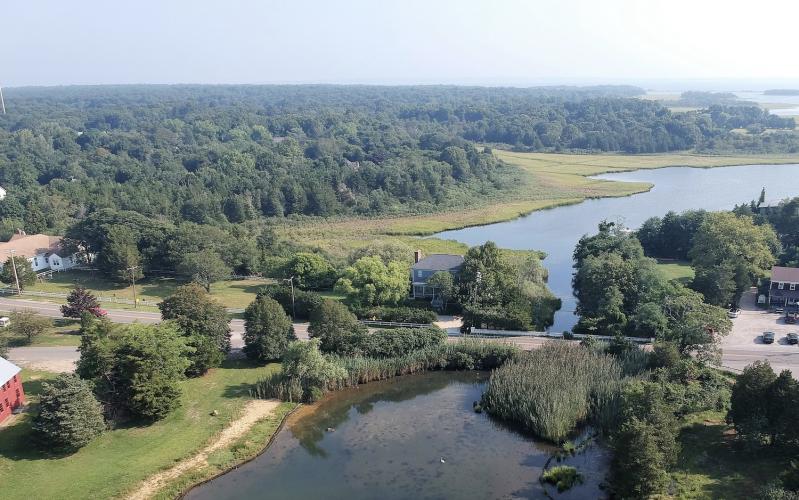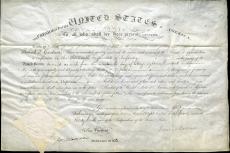The bridge that spans the outflow from Pussy’s Pond in Springs into Accabonac Harbor off Old Stone Highway will soon be repaired, and an eighth-of-an-acre sea of phragmites removed, at a cost of $658,000. The East Hampton Town Board awarded the contract to Keith Grimes Inc., in August, and the work was detailed on Tuesday.
While construction is expected to last for five months, no start date was given. Jim Peterman of L.K. McLean Associates said Mr. Grimes “was reluctant to give a schedule” because the contract, while in the town’s hands, hadn’t yet been signed.
Old Stone Highway will be closed for a maximum of two weeks, Mr. Peterman said. “Do I think it will take 14 days? No. But I put some safety time in there,” in case of bad weather or some other surprise during construction.
The bridge’s condition “is not the greatest,” he noted. “It needs a little more than paint.” Its white concrete walls, for example, are being pushed by soil and are off kilter.
The bigger problem, however, isn’t visible from the road. Under the water, where it passes back and forth between the pond and the harbor, a five-foot-diameter steel half-pipe sitting on concrete footings is so badly rusted “you could stick your finger through it,” he said. A new aluminum half-pipe will be installed, but Mr. Grimes has warned that it may not arrive for 12 weeks.
A different manufacturer is being sought.
When the structural work is complete, the entire bridge will be sandblasted. Its cracks will be sealed, and it will get a fresh coat of white paint. There will be a widened crossing for pedestrians and bikes as well.
The problematic phragmites will be removed from the Pussy’s Pond side of the bridge at a cost of $279,300, 85 percent of it to come from the Community Preservation Fund’s water quality initiative. Mellissa McCarron, a principal environmental analyst for the town, said the remaining 15 percent, in addition to the $378,700 for the bridge work, will be bonded. Supervisor Kathee Burke-Gonzalez, however, reminded the board that the state has awarded a $250,000 grant for the project, bringing the town’s net cost down to $170,604.25.
Speaking of phragmites, Ms. McCarron said these reed grasses were introduced from Europe in the 1800s and can grow up to 20 feet tall, displacing native plant species while not providing suitable habitat for local birds or aquatic life. Their sub-surface rhizomes can burrow six feet down, making them difficult to eradicate. Often, they grow back.
Once the phragmites are gone, the Natural Resources Department will be tasked with removing any new shoots. That will allow newly planted natives — spartina grass, cardinal flower, swamp rose, seaside goldenrod, and burlier upland varieties like Northern bayberry and summersweet — to establish and colonize the area.
While the board voiced concerns over traffic impacts if the project is done during the school year, Mr. Peterman assured them that ample signage would be placed and that a detour would be minor, sending drivers only a block away.
The improvements to the bridge follow similar projects at the pond. In 2016, phragmites along its west side were removed; a buffer and bioswale have since been planted on the east side. A lawn area was removed in 2015, and a meadow established in its stead by 2017.
The work is unrelated to an application to renovate the nearby Springs General Store, which, via a proposed new low-nitrogen septic system, would also improve the water quality in Accabonac Harbor.




